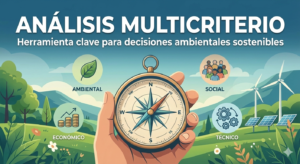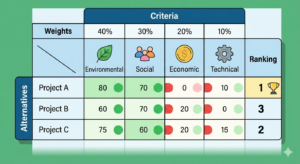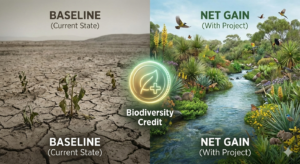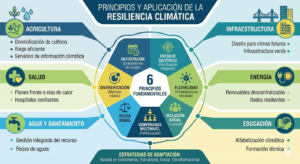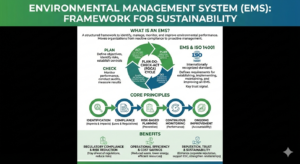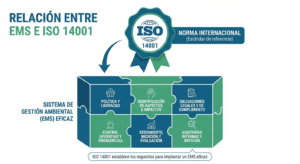What Are Energy and Climate Certifications and Why Do They Matter?
Energy and Climate Certifications are programs that evaluate and validate actions aimed at energy efficiency, greenhouse gas reduction, and climate change mitigation. They provide credibility to organizations, products, and projects by demonstrating measurable sustainability performance.
In today’s global transition towards clean energy, certifications have become more than labels, they are a strategic asset for companies, institutions, and even governments that want to:
- Comply with environmental regulations.
- Improve brand reputation and consumer trust.
- Access international markets and funding opportunities.
- Quantify and report carbon reduction achievements.
By aligning with certifications, organizations showcase commitment to energy and climate action, reinforcing their role in the energy transition.
Key Benefits of Energy and Climate Certifications
- Enhanced credibility and trust: Certified projects are verified by independent and internationally recognized bodies.
- Market competitiveness: Many industries and supply chains demand sustainability certifications as entry requirements.
- Operational savings: Energy efficiency standards often reduce long-term energy costs.
- Climate leadership: Organizations demonstrate alignment with global goals such as the Paris Agreement and the UN Sustainable Development Goals (SDGs).
- Access to finance: Certified emission reductions and carbon credits can be monetized in voluntary and compliance carbon markets.
Main Certifications in Energy Efficiency and Climate Change
Here is a list of the most relevant energy and climate certifications worldwide:
Energy Star (U.S. EPA Program)
Managed by the U.S. Environmental Protection Agency (EPA), Energy Star certifies appliances, buildings, and facilities that achieve high energy efficiency. Though it originated in the U.S., it has become a global reference for energy efficient products and equipment.
Carbon Footprint and Carbon Neutral Certifications
These schemes measure, reduce, and offset CO₂ emissions. Key international standards include:
- Gold Standard (GS): Developed by WWF and NGOs, it certifies emission-reduction projects with added social and environmental benefits.
- Verified Carbon Standard (VCS, Verra): The world’s most widely used voluntary carbon certification system, issuing Verified Carbon Units (VCUs), each equivalent to 1 ton of CO₂ avoided or removed.
Energy Savings Certificate (CAE – Spain)
Issued under the Spanish Ministry for Ecological Transition, this certification quantifies energy reductions in buildings and industries. It provides a transparent benchmark for national energy saving targets.
Clean Development Mechanism (CDM – UNFCCC)
Created under the Kyoto Protocol, CDM allowed industrialized countries to finance emission reduction projects in developing nations, generating tradable carbon credits. Although less active today, it remains a benchmark in international climate governance.
ISO 50001: Energy Management System
This standard is designed to improve energy efficiency across industries. Organizations certified in ISO 50001 reduce costs, improve competitiveness, and align with global climate change goals.
How to Choose the Right Energy and Climate Certification
Selecting the right certification depends on:
- Scope of application: Product, building, corporate operations, or large-scale project.
- Geographic recognition: Some certifications are global (e.g., Gold Standard, VCS), while others are national (e.g., CAE).
- Stakeholder expectations: Consider supply chain, investors, and regulatory requirements.
- Long-term goals: Whether the focus is cost savings, carbon neutrality, or international recognition.
The Future of Energy and Climate Certifications
As climate policies tighten and carbon markets expand, certifications will play an even larger role in:
- Standardizing reporting under ESG frameworks.
- Supporting net-zero roadmaps for businesses and cities.
- Enhancing transparency in carbon offset markets.
- Promoting innovation in renewable energy and sustainable technologies.
Certifications will not only validate achievements but also become gateways for accessing international finance, partnerships, and global supply chains.
Frequently Asked Questions
What is the most recognized energy and climate certification worldwide?
Currently, Energy Star, Gold Standard, and VCS are among the most internationally recognized.
Are these certifications mandatory?
Some are voluntary (e.g., VCS, Gold Standard), while others may be required at national or regional levels (e.g., Energy Savings Certificate in Spain).
How do certifications contribute to climate action?
They provide measurable proof of energy savings or emission reductions, aligning organizations with the Paris Agreement and UN Sustainable Development Goals.
Who can apply for these certifications?
Corporations, governments, NGOs, and even small businesses seeking to validate their energy and climate commitments.
Energy and Climate Certifications are powerful tools to prove real progress in the fight against climate change. From energy efficiency programs like Energy Star, to carbon market standards like VCS and Gold Standard, they enhance credibility, reduce costs, and unlock new opportunities.
In 2025 and beyond, adopting certifications will no longer be optional , it will be a strategic necessity for businesses, governments, and organizations committed to a sustainable energy future.

